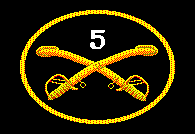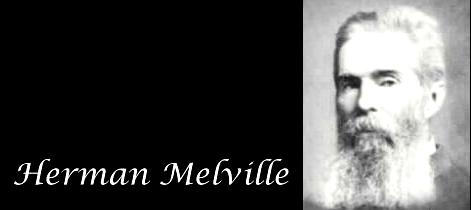

Herman Melville (1819-1891) was an American novelist whose works remained in relative obscurity until the 1920s, when his genius was finally recognized. A New Yorker, in 1839 he shipped to Liverpool, England, as a cabin boy. When he returned to the United States he taught school and then sailed for the South Seas in 1841 on the whaler Acushnet. After an 18-month voyage Melville deserted the ship in the Marquesas Islands and with a companion lived for a month among the natives, who were cannibals (see Cannibalism). He escaped aboard an Australian trader, leaving it at Papeete, Tahiti, where he was imprisoned temporarily. He worked as a field laborer and then shipped to Honolulu, Hawaii, where in 1843 he enlisted as a seaman on the U.S. Navy frigate USS United States. After his discharge in 1844 Melville began to write novels based on his experiences.
Melville's first novels all achieved popularity. White-Jacket, or the World in a Man-of-War, a fictionalization of his experiences in the navy, exposed the abuse of sailors that was prevalent in the world's navies at that time. Melville became a close friend of the writer Nathaniel Hawthorne, to whom Melville dedicated his masterpiece, Moby-Dick. Unfortunately, neither this book nor those which followed were financial successes.
Following the war, Melville worked as a customs inspector in New York City. He also published poetry including Battle-Pieces and Aspects of the War. As his novels are already familiar selections from his Battle Pieces follow.
The Conflict of Convictions
On starry heights
A bugle wails the long recall;
Derision stirs the deep abyss,
Heaven's ominous silence over all.
Return, return, O eager Hope,
And face man's latter fall.
Events, they make the dreamers quail;
Satan's old age is strong and hale,
A disciplined captain, gray in skill,
And Raphael a white enthusiast still;
Dashed aims, at which Christ's martyrs pale,
Shall Mammon's slaves fulfill?
(Dismantle the fort,
Cut down the fleet --
Battle no more shall be!
While the fields for fight in aeons to come
Congeal beneath the sea.)
The terrors of truth and dart of death
To faith alike are vain;
Though comets gone a thousand years,
Return again,
Patient she stands -- she can no more --
And waits, nor heeds she waxes hoar.(At a stony gate,
A statue of stone,
Weed overgrown --
Long 'twill wait!)But God his former mind retains,
Confirms his old decree;
The generations are inured to pains,
And strong Necessity
Surges, and heaps Time's strand with wrecks.
The People spread like a weedy grass,
The thing they will they bring to pass,
And prosper to the apoplex.
The rout it herds around the heart,
The ghost is yielded in the gloom;
Kings wag their heads -- Now save thyself
Who wouldst rebuild the world in bloom.(Tide-mark
And top of the ages' strife,
Verge where they called the world to come,
The last advance of life -
- Ha ha, the rust on the Iron Dome!)Nay, but revere the hid event;
In the cloud a sword is girded on,
I mark a twinkling in the tent
Of Michael the warrior one.
Senior wisdom suits not now,
The light is on the youthful brow.(Ay, in caves the miner see:
His forehead bears a blinking light;
Darkness so he feebly braves --
A meagre wight!)But He who rules is old -- is old;
Ah! Faith is warm, but heaven with age is cold.
(Ho ho, ho ho,
The cloistered doubt
Of olden times
Is blurted out!)The Ancient of Days forever is young,
Forever the scheme of Nature thrives;
I know a wind in purpose strong --
It spins against the way it drives.
What if the gulfs their slimed foundations bare?
So deep must the stones be hurled
Whereon the throes of ages rear
The final empire and the happier world.(The poor old Past,
The Future's slave,
She drudged through pain and crime
To bring about the blissful Prime,
Then -- perished. There's a grave!)Power unanointed may come --
Dominion (unsought by the free)
And the Iron Dome,
Stronger for stress and strain,
Fling her huge shadow athwart the main;
But the Founders' dream shall flee.
Age after age shall be
As age after age has been,
(From man's changeless heart their way they win);
And death be busy with all who strive --
Death, with silent negative.YEA AND NAY --
EACH HATH HIS SAY;
BUT GOD HE KEEPS THE MIDDLE WAY.
NONE WAS BY
WHEN HE SPREAD THE SKY;
WISDOM IS VAIN, AND PROPHESY.
SHILOH: A Requiem
Skimming lightly, wheeling still,
The swallows fly low
Over the field in clouded days,
The forest-field of Shiloh --
Over the field where April rain
Solaced the parched one stretched in pain
Through the pause of night
That followed the Sunday fight
Around the church of Shiloh --
The church so lone, the log-built one,
That echoed to many a parting groan
And natural prayer
Of dying foemen mingled there --
Foemen at morn, but friends at eve --
Fame or country least their care:
(What like a bullet can undeceive!)
But now they lie low,
While over them the swallows skim
And all is hushed at Shiloh.
Look-Out Mountain: The Night Fight
Who inhabiteth the Mountain
That it shines in lurid light,
And is rolled about with thunders,
And terrors, and a blight,
Like Kaf the peak of Eblis--
Kaf, the evil height?
Who has gone up with a shouting
And a trumpet in the night?There is battle in the Mountain--
Might assaulteth Might;
'Tis the fastness of the Anarch,
Torrent-torn, an ancient height;
The crags resound the clangor
Of the war of Wrong and Right;
And the armies in the valley
Watch and pray for dawning light.Joy, joy, the day is breaking,
And the cloud is rolled from sight;
There is triumph in the Morning
For the Anarch's plunging flight;
God has glorified the Mountain
Where a banner burneth bright,
And the armies of the valley
They are fortified in right.
The March to the Sea
Not Kennesaw high-arching,
Nor Allatoona's glen --
Though there the graves lie parching --
Stayed Sherman's miles of men;
From charred Atlanta marching
They launched the sword again.
The columns streamed like rivers
Which in their course agree,
And they streamed until their flashing
Met the flashing of the sea:
It was glorious glad marching,
That marching to the sea.They brushed the foe before them
(Shall gnats impede the bull?);
Their own good bridges bore them
Over swamps or torrents full,
And the grand pines waving o'er them
Bowed to axes keen and cool.
The columns grooved their channels,
Enforced their own decree,
And their power met nothing larger
Until it met the sea:
It was glorious glad marching,
A marching glad and free.Kilpatrick's snare of riders
In zigzags mazed the land,
Perplexed the pale Southsiders
With feints on every hand;
Vague menace awed the hiders
In forts beyond command.
To Sherman's shifting problem
No foeman knew the key;
But onward went the marching
Unpausing to the sea:
It was glorious glad marching,
The swinging step was free.The flankers ranged like pigeons
In clouds through field or wood;
The flocks of all those regions,
The herds and horses good,
Poured in and swelled the legions,
For they caught the marching mood.
A volley ahead! They hear it;
And they hear the repartee:
Fighting was but frolic
In that marching to the sea:
It was glorious glad marching,
A marching bold and free.All nature felt their coming,
The birds like couriers flew,
And the banners brightly blooming
The slaves by thousands drew,
And they marched beside the drumming,
And they joined the armies blue.
The cocks crowed from the cannon
(Pets named from Grant and Lee),
Plumed fighters and campaigners
In that marching to the sea:
It was glorious glad marching,
For every man was free.The foragers through calm lands
Swept in tempest gay,
And they breathed the air of balm-lands
Where rolled savannas lay,
And they helped themselves from farm-lands --
As who should say them nay?
The regiments uproarious
Laughed in Plenty's glee;
And they marched till their broad laughter
Met the laughter of the sea:
It was glorious glad marching,
That marching to the sea.The grain of endless acres
Was threshed (as in the East)
By the trampling of the Takers,
Strong march of man and beast;
The flails of those earth-shakers
Left a famine where they ceased.
The arsenals were yielded;
The sword (that was to be),
Arrested in the forging,
Rued that marching to the sea;
It was glorious glad marching,
But ah, the stern decree!For behind they left a wailing,
A terror and a ban,
And blazing cinders sailing,
And houseless households wan,
Wide zones of counties paling,
And towns where maniacs ran.
Was it Treason's retribution --
Necessity the plea?
They will long remember Sherman
And his streaming columns free --
They will long remember Sherman
Marching to the sea.
